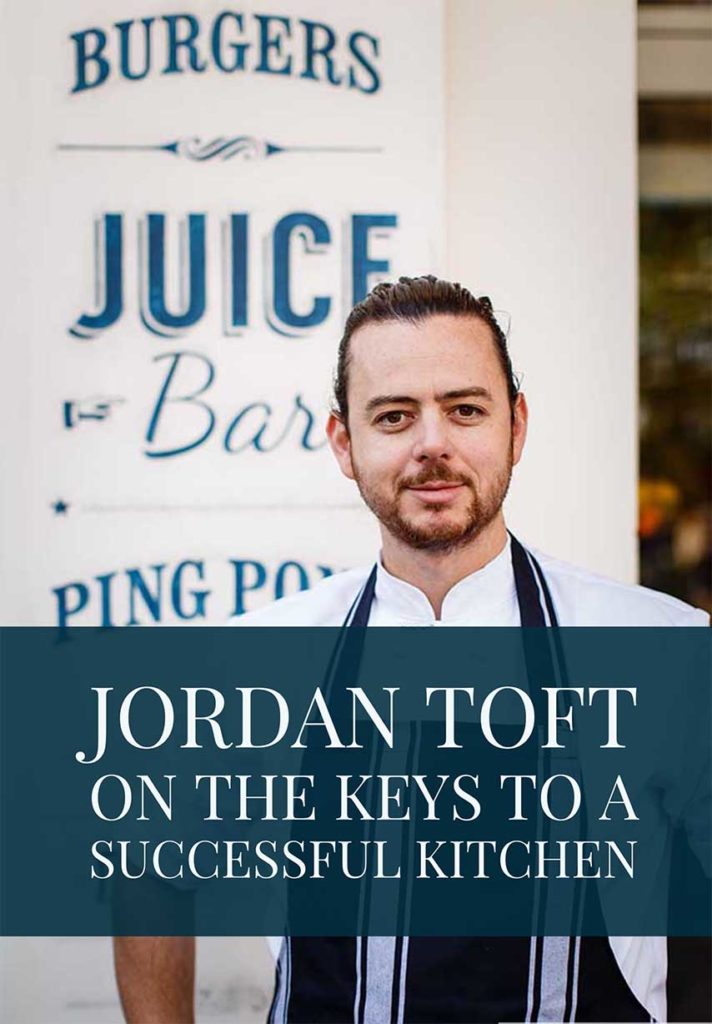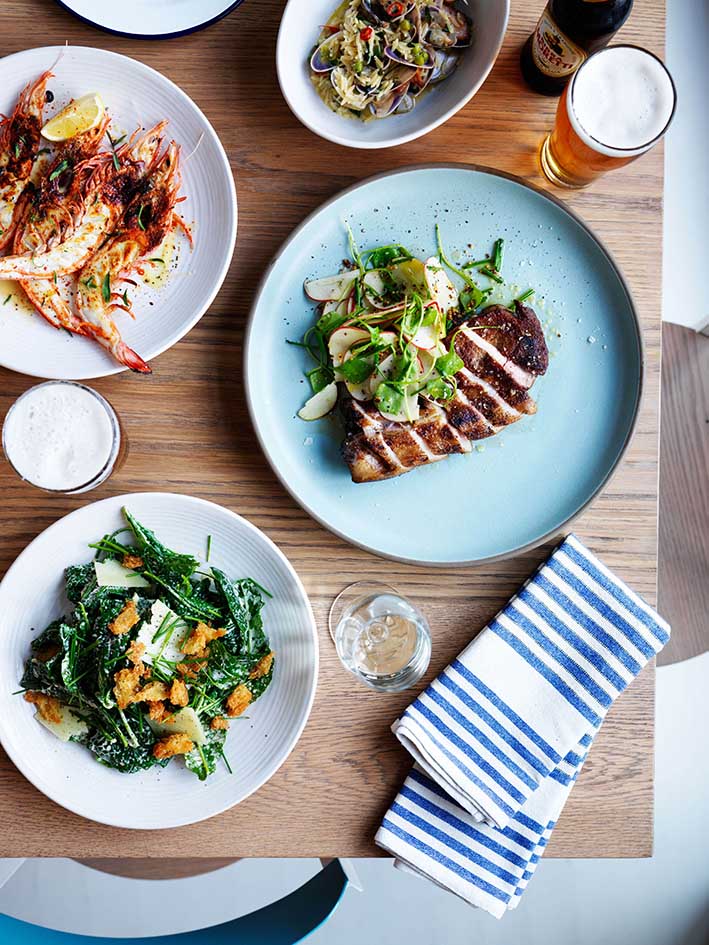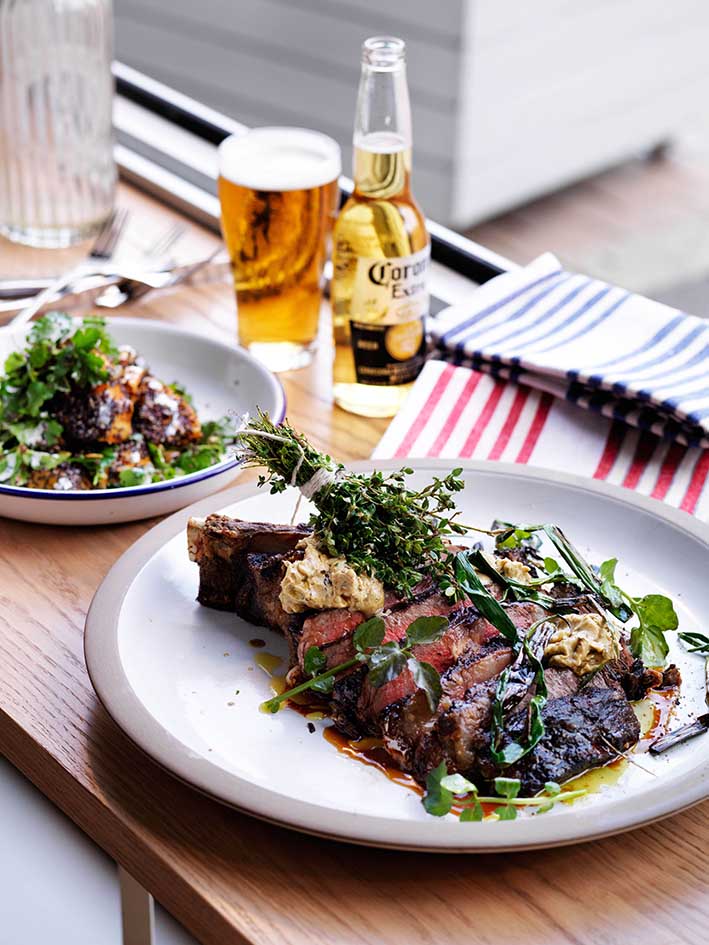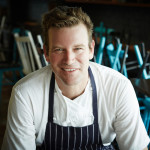All About the People: Jordan Toft on The Keys to a Successful Kitchen
 Jordan Toft has been in the cooking business for a long time: 20 years, in fact. He got his start at the tender age of 15 working in the Sydney Opera House kitchen, and has been working as a chef ever since. He’s also lived on three continents, working in restaurants located in France, Italy, and the United States. Over the years and across his travels he’s learned several key things that have helped him bolster his career, and he spoke with Slammed Hospitality Talk to share some of these nuggets of wisdom.
Jordan Toft has been in the cooking business for a long time: 20 years, in fact. He got his start at the tender age of 15 working in the Sydney Opera House kitchen, and has been working as a chef ever since. He’s also lived on three continents, working in restaurants located in France, Italy, and the United States. Over the years and across his travels he’s learned several key things that have helped him bolster his career, and he spoke with Slammed Hospitality Talk to share some of these nuggets of wisdom.
When managing a kitchen, Jordan says, the most important thing to consider by far is relationships. In the hospitality industry, people are both the biggest assets and the hardest challenge. It’s not easy sometimes to keep the morale up in such a high-stress environment as a kitchen during the busiest hours of the day. But as we say, the hospitality industry is all about the people, so head chefs must lead by example and inspire their staff to do their best.
 Fostering a sense of teamwork is paramount to boosting your restaurant’s success. Staff who feel like they’re a part of a team, and that they have some say-so in running things – whether they’re a sous chef, head chef or lowly line cook – will work better and give you their best effort. If everybody works better in the back of house, this will motivate the front of house, as well. And an overall better work experience will create a better customer experience.
Fostering a sense of teamwork is paramount to boosting your restaurant’s success. Staff who feel like they’re a part of a team, and that they have some say-so in running things – whether they’re a sous chef, head chef or lowly line cook – will work better and give you their best effort. If everybody works better in the back of house, this will motivate the front of house, as well. And an overall better work experience will create a better customer experience.
These days, Jordan says, with so many flashy cooking competition shows, people might get the wrong idea about what it takes to be successful. Young people are not so much lazy as misunderstanding the amount of work it takes to achieve such levels of success. And unfortunately, many people can work hard for decades and not see the results they want.
Jordan advises young aspiring head chefs to take your time. Learn your craft – preferably for about ten years, as he did, focusing specifically on perfecting his cooking craft. He spent some time getting to know chefs that he respected, such as Peter Doyle, and learned as much as he could from them. He started young, so he could easily put concerns about money aside and focus purely on the craft of cooking. By his late 20s he was in a place where he could focus on climbing the ladder and striking out on his own.
As an older chef, he advises other veterans to give advice and guide young aspiring chefs so they can learn their craft and pass on their own industry knowledge. This is all a part of developing relationships with your staff so you have a healthy work environment. Hard work is necessary, of course, to achieve success as a restaurant, and costs can get high, but it’s important to remember that it’s not just about the money. It’s also about the craft and creativity that goes into making a great dish that people enjoy. Something as simple as pulling someone aside and telling them that they did a great job that day will help boost morale.
Of course, things will not always go so well, but Jordan only berates employees when they’ve done something wrong and underhanded – not when it’s an honest mistake. Gone are the days of employees enduring a boss’s tirade for hours on end and still showing up to work the next day. Now a good kitchen is run as a supportive environment to foster talent and teamwork.
 Organization is also key to running a successful kitchen. If all the staff and equipment are running smoothly, then you can better concentrate on creating great product. Organization ranges from managing how the cool rooms are to labeling and shelving food items and keeping equipment clean and up to par. If any hiccups occur in the kitchen, the whole system can be thrown off, and focus shifts to getting the system right again – not a good use of the kitchen staff’s energy. Jordan burdens a lot of the organization upon himself, especially for scheduling purposes, taking a top-down approach so there’s a clear sense of responsibility and accountability.
Organization is also key to running a successful kitchen. If all the staff and equipment are running smoothly, then you can better concentrate on creating great product. Organization ranges from managing how the cool rooms are to labeling and shelving food items and keeping equipment clean and up to par. If any hiccups occur in the kitchen, the whole system can be thrown off, and focus shifts to getting the system right again – not a good use of the kitchen staff’s energy. Jordan burdens a lot of the organization upon himself, especially for scheduling purposes, taking a top-down approach so there’s a clear sense of responsibility and accountability.
It’s also important to keep in mind the creative side of food. Jordan specializes in running farm-to-table establishments, creating daily menus to reflect the availability and seasonality of the local food he was sourcing for the restaurant. The most successful restaurants in the business offer something a little more than just something to eat – a whole experience can often come packaged with it. Serve a great product, and the great experience will follow.
In the future, Jordan looks to open up another location of his restaurant, Coogee Pavilion, as well as focusing on his current ventures. If you want to keep up with what Jordan’s doing on social media, you can follow him on Twitter and Instagram at @jordanwtoft.
Jordan’s Ten Takeaways
-
If you’re a young aspiring chef, take your time to learn the craft. The opportunities will easily follow.
-
With kitchen staff in particular, building group morale is essential to run a successful kitchen.
-
Building relationships is key in the restaurant business – with customers, staff, and farmers if you source your ingredients directly.
-
Good organization will allow you to focus solely on the product.
-
Veteran chefs take note: just as young chefs should seek guidance and advice, you should be willing to give it.
-
Keep your menu balanced between your signatures and your mainstays to manage costs and keep prices reasonable for your particular restaurant tier.
-
Make sure you focus on your product – if the food’s not great, people won’t come back to your restaurant.
-
Young chefs should also keep in mind that it takes a lot of hard work to reach a certain level of success, and be prepared to put that work in. In the end, it’s all up to you, what you make of your career and success.
-
Even as a chef, consider the guest experience as well. Keep in mind that there’s no strict dividing line between the front of house and back of house.
-
Though creativity and craft will help you stand out, don’t lose sight of the numbers – you can have the most creative dishes around, but if you can’t recoup costs, your restaurant won’t last long.
Podcast: Play in new window | Download
Subscribe: RSS









